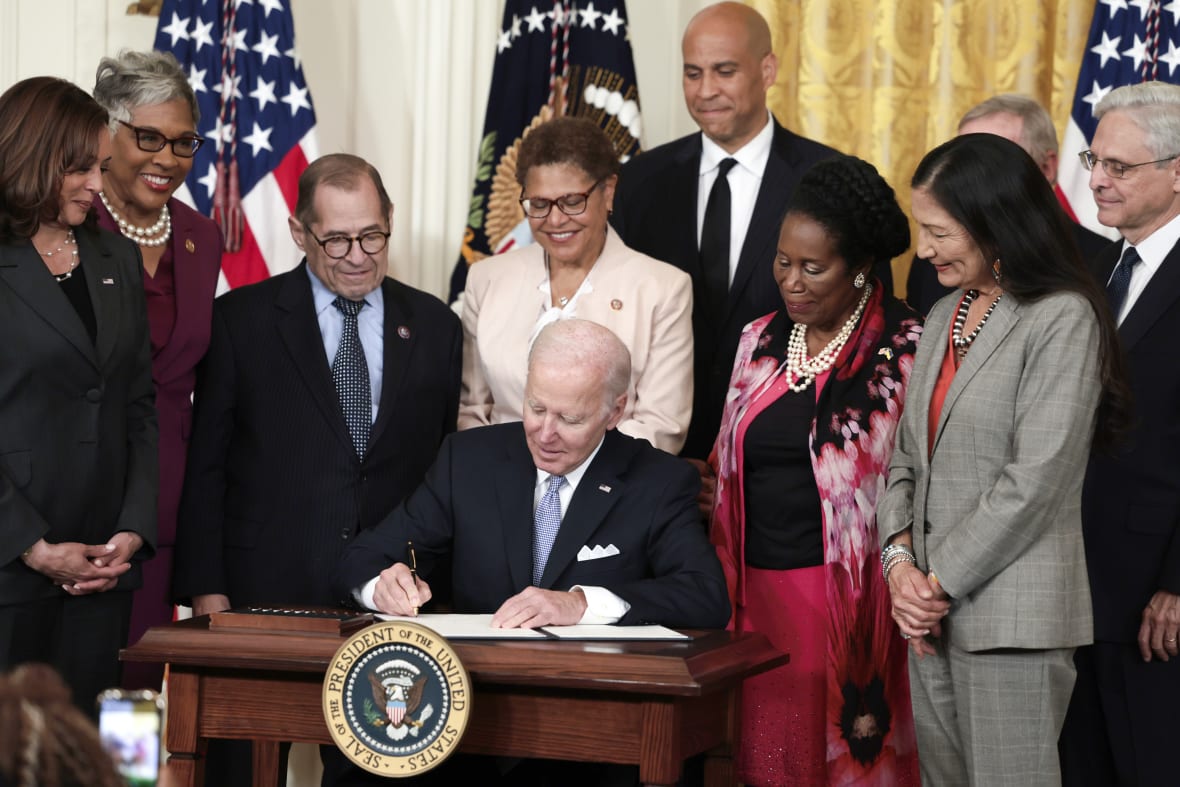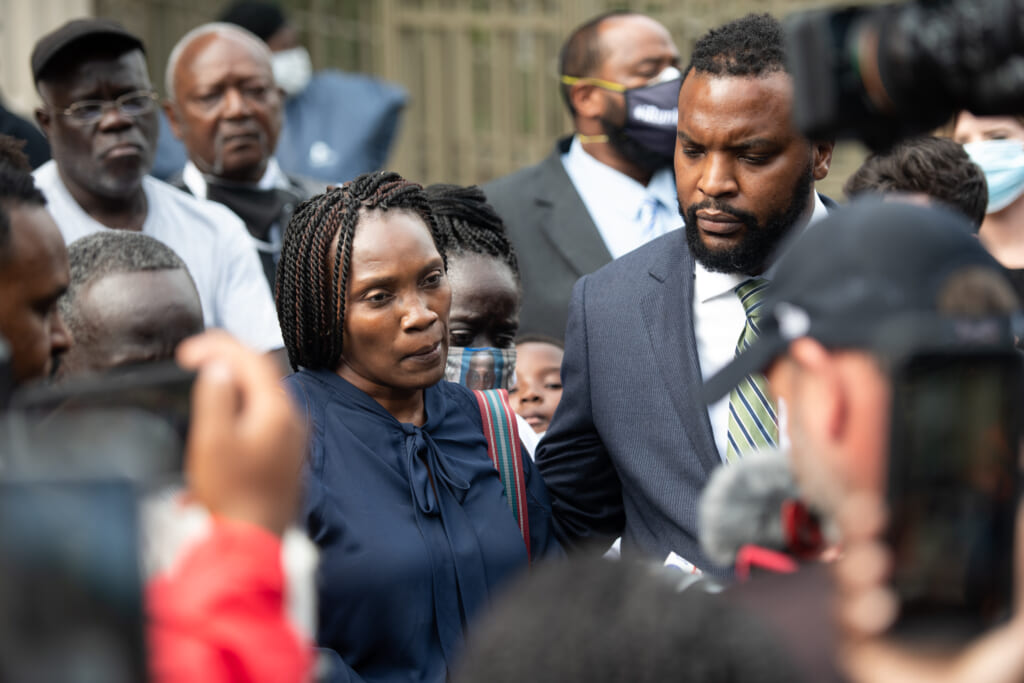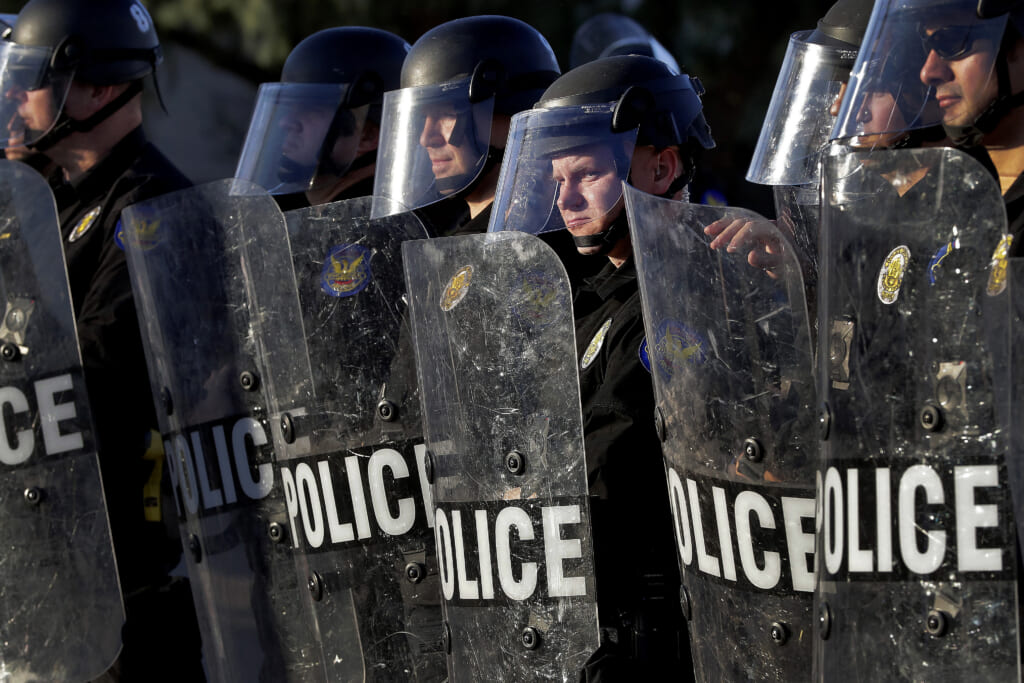The White House updates on Biden policing executive order and George Floyd bill
TheGrio has learned that Biden officials have reached out to the families of victims of deadly police force to update them on the work of the administration.
The White House Domestic Policy Council and General Counsel’s offices are making follow-up calls to the families of victims of deadly police force, theGrio has learned.
The outreach is intended to update them, as well as civil rights attorneys, on the progress in implementing President Joe Biden’s executive order on police reform that he signed earlier this year.

President Biden signed the order on the one-year anniversary of the death of George Floyd, an unarmed Black man who was murdered by a Minneapolis police officer. Floyd’s death ignited mass protests in 2020 against racial violence and police brutality, which galvanized Black and brown voters, who were crucial in the win of the Biden-Harris presidential campaign.
The Biden White House, in recent times, has attempted to demonstrate to families that it is keeping its promise to provide tangible efforts to address bad and deadly policing. It’s also a follow-up to a previous meeting on the matter with Susan Rice, director of the Domestic Policy Council, former White House counsel Dana Remus, and former director of public engagement, Cedric Richmond.
The executive order was a follow-up to Biden’s presidential campaign promise to enact laws to improve police accountability in cases of abuse or misconduct, particularly as it relates to Black Americans. However, a law to do just that, and named after Floyd, failed to be passed in Congress.
The George Floyd Justice in Policing Act collapsed on Capitol Hill amid failed bipartisanship talks between Democrats and Republicans, despite Biden’s call for Congress to pass the bill by the one-year anniversary of Floyd’s murder. The president was left to pick up the pieces with the policing executive order, which doesn’t have the legal teeth of a law passed by Congress.
One of the key issues that the White House Counsel recently stressed with the families is the national police accountability database, civil rights attorney Lee Merritt, who previously represented the family of Ahmaud Arbery, shared with theGrio. The administration shared that the database registry will be implemented through the Department of Justice. The tool is intended to increase efforts to track bad policing and prevent those officers from freely moving from department to department without accountability.

Merritt said that the DOJ, through the president’s executive order, had 240 days to make these registries functional for implementation. The announcement of the implementation is expected around Martin Luther King Jr. Day, Jan. 20, according to department officials.
Sources close to the 28 or so components of the police reform order say they will directly impact over 100,000 federal law enforcement officers, and establish federal law enforcement as a national role model for state and local law enforcement agencies across the country. The order also incentivizes reforms, including the use of force and de-escalation standards, at the state and local levels by providing federal funding and technical assistance.
The White House hopes these steps, working simultaneously, will enhance public trust and strengthen public safety, as the President continues to push for the George Floyd Justice in Policing Act to become law. During the press briefing on Thursday, White House press secretary Karine Jean-Pierre told theGrio that passing the bill into law remains a priority for the president.

“He’s going to continue to work with Congress to get that done, to get this bill to his desk so he can sign it,” she said.
As the Biden administration continues its push on police, a recent report from Washington Post revealed that fatal police shootings have increased, and many remain unreported. The data contradicts federal records that say police-involved fatal shootings have declined since 2015. No matter the contradiction, the White House sees the issue as a priority that must be addressed.
“The entire administration … remains committed to implementing the president’s executive order to help strengthen public trust and public safety,” said Jean-Pierre.
TheGrio’s White House correspondent Gerren Keith Gaynor contributed to this report.
TheGrio is FREE on your TV via Apple TV, Amazon Fire, Roku and Android TV. Also, please download theGrio mobile apps today!
More About:Politics


